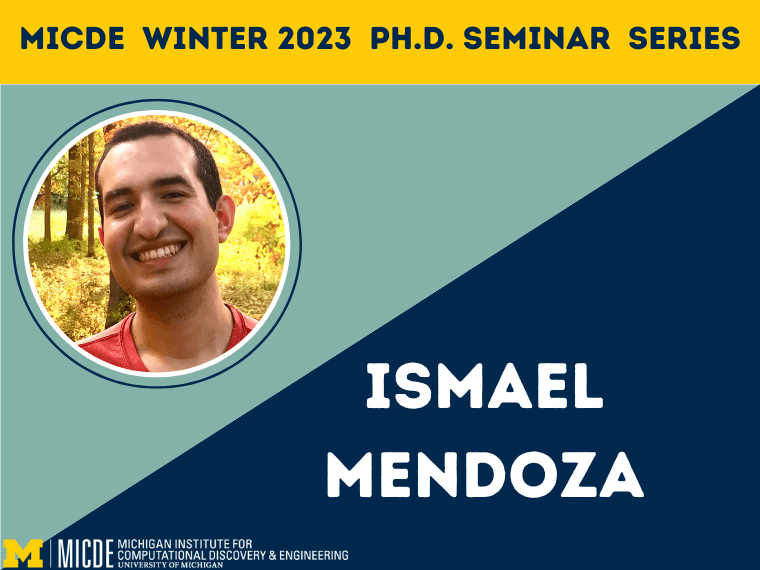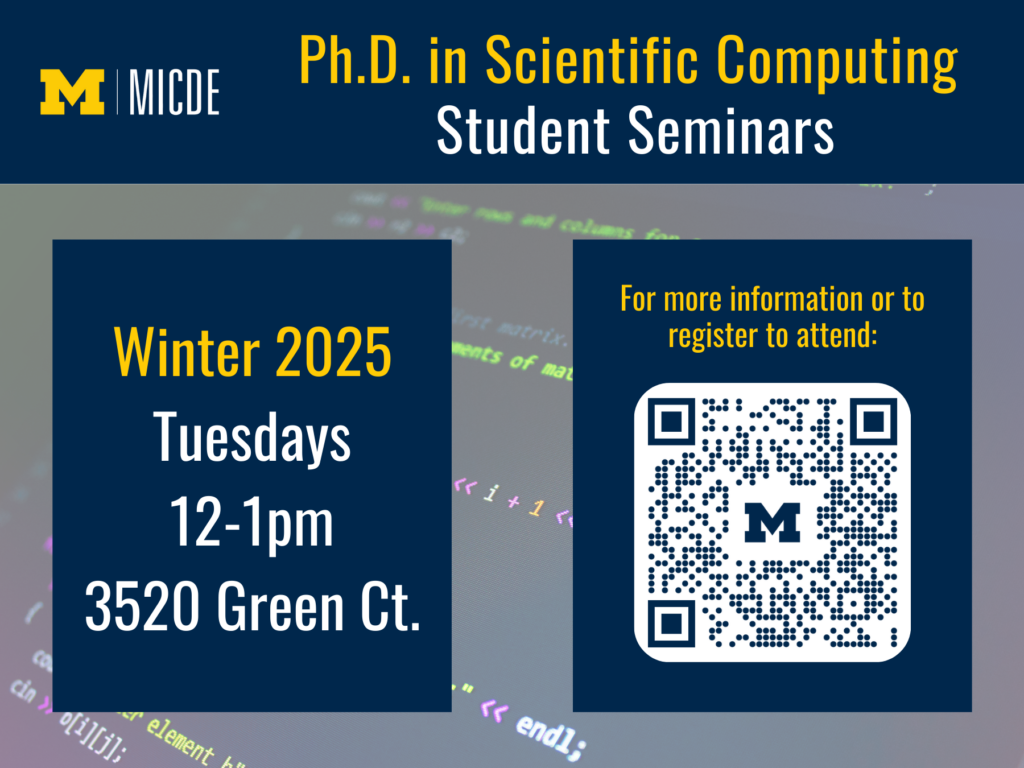Events

- This event has passed.
PhD Seminar: Ismael Mendoza
January 12, 2023 @ 4:00 pm - 4:30 pm
Venue: Weiser Hall, 6th Floor, 619

The Ph.D. in Scientific Computing program is intended for students who will make extensive use of large-scale computation, computational methods, or algorithms for advanced computer architectures in their doctoral studies. This seminar series showcases the breadth of research covered by the program.
Featured Speaker:
 Ismael Mendoza, PhD Candidate, Physics and Scientific Computing
Ismael Mendoza, PhD Candidate, Physics and Scientific Computing
Ismael is a 4th year Physics PhD student working in the area of cosmology. His research focuses on developing novel statistical and machine learning methods to analyze astronomical images from state-of-the-art telescopes.
Machine Learning in Cosmology
In the upcoming decades, we will have the opportunity to solve some of the biggest questions about our universe by taking advantage of the huge amounts of data produced by upcoming state-of-the-art cosmological experiments. In order to harness the full statistical power of this data, we will need to develop scalable and accurate algorithms that can extract its maximal information. Recent advances in Machine Learning have demonstrated its ability to overcome the computational bottlenecks of traditional statistical techniques and even achieve better performance when analyzing cosmology data. In this talk, I will give a brief overview of the open problems in cosmology, motivate how Machine Learning (ML) could help us answer these by enabling novel analyses of upcoming cosmological surveys, and give a specific application of ML enabling probabilistic detection and measurement of galaxy images.
This event is part of MICDE’s seminar series featuring Ph.D. students in the Scientific Computing program. This series is open to all. University of Michigan faculty and students interested in computational and data sciences are encouraged to attend.
Questions? Email MICDE-events@umich.edu

